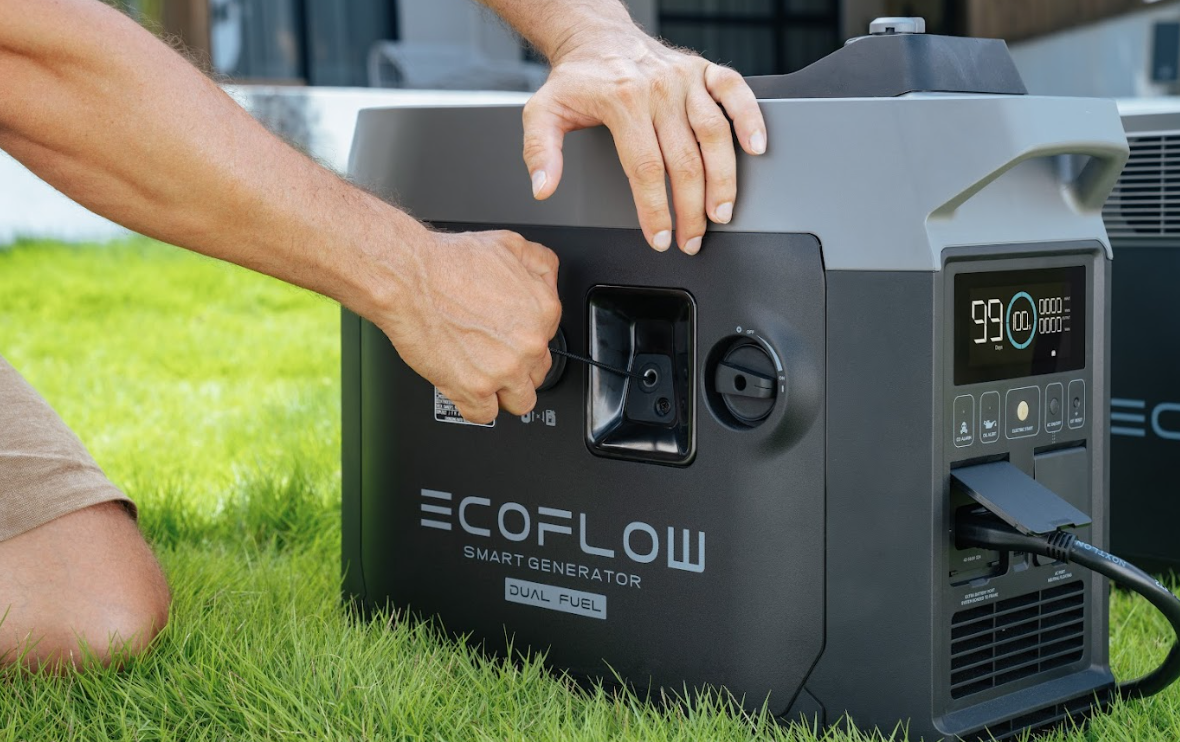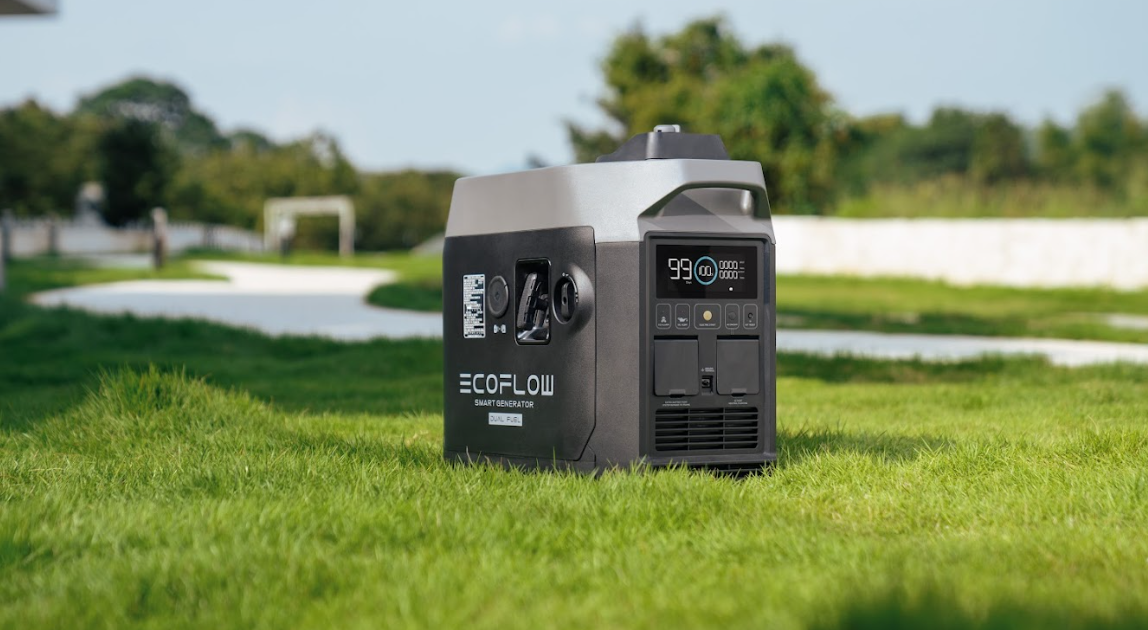Are Quiet Generators Really Necessary for Camping?
- Quiet Camping Generator: How to Find Your Silent Power Source
- Are Quiet Generators Really Necessary for Camping?
- Decibel Levels Explained: What's Too Loud for Campsites?
- What Factors Affect Camping Generator Noise?
- How to Choose the Right Silent Camping Power Source
- Enjoy Peaceful Camping With the Best Quiet Generators
- FAQ: Quiet Camping Generator Questions
Quiet Camping Generator: How to Find Your Silent Power Source
Life outdoors offers a wonderful escape, but there's a quick way to spoil the peace: a loud, rumbling generator. If you've ever been jolted awake by noisy camping power or had to shout over your own equipment, you know the frustration. In this guide, you’ll learn how to pick the best quiet generators for camping so your next adventure is filled with calm, not clamor.
Are Quiet Generators Really Necessary for Camping?
You might question whether all this talk about quiet generators for camping is really necessary. The truth is that a loud power source can really ruin your outdoor experience, both for you and the people around you.
- The hum of a generator can easily drown out the sounds of nature, turning a peaceful campsite into a small industrial zone.
- Many campgrounds, especially state and national parks, have strict rules about generator noise. For example, there are often "quiet hours" when generators are not allowed at all. Breaking these rules can get you fined or even asked to leave.
- Besides following the rules, it's simply a matter of respecting your fellow campers. No one wants someone else's loud tools to rock their peaceful getaway.
- Also, making too much noise can scare animals away, making it less likely to see the very animals you came to observe.
In the end, picking low noise generators means a more enjoyable and harmonious outdoor experience for everyone.
Decibel Levels Explained: What's Too Loud for Campsites?
To truly find a silent power source for your Summer Camping, it helps to understand what "quiet" actually means when we talk about sound. Noise is measured in decibels (dB), and these numbers can tell you a lot about how loud a generator will be.
Decibels are a logarithmic scale, meaning a small increase in numbers represents a big jump in perceived loudness. For instance, a 10 dB increase feels like the sound has doubled! Here's a simple table to help you gauge different decibel levels:
| Decibel Level (dB) (at 7 meters) | Sound Description | Camping Suitability |
| 30-40 | Refrigerator Hum, Whisper | Excellent (Nearly Silent) |
| 40-50 | Quiet Library, Bird Song | Very Good (Barely Noticeable) |
| 50-60 | Normal Conversation | Acceptable (Noticeable, but not disruptive) |
| 60-70 | Dishwasher, Sewing Machine | Questionable (Might disturb neighbors) |
| 70+ | Vacuum Cleaner, Loud Traffic | Unsuitable (Likely violate quiet hours) |
Decibel Levels and Their Impact
Most campgrounds require generators to be under 60 dB at 23 feet. Most of the time, generators in the 50–60 dB range are the best ones for camping. If you want a camp with no noise, engines that are between 40 and 55 dB are best. Any noise over 60 dB is likely to be too loud and bother other campers.
What Factors Affect Camping Generator Noise?
So, what makes some generators roar like a lion while others whisper like a breeze? Several factors play a big part in how much generator noise your camping setup will produce.
Technology Type
The biggest factor influencing noise is the generator's core technology.
| Feature | Battery Power Station | Inverter Generator | Traditional Generator |
| Noise Level | Whisper quiet (≤30 dB) | Moderate (50–65 dB) | Loud (70–100+ dB) |
| Power Source | Rechargeable battery | Gasoline or propane | Gasoline or diesel |
| Inverter Output | Pure sine wave (built-in) | Pure sine wave (stable) | Often unstable current |
| Indoor Use | Safe for indoor use | Outdoor use only (fumes) | Outdoor use only (fumes & noise) |
| Portability | Lightweight, compact models | Heavier but portable | Bulky and heavy |
| Runtime | Limited by battery capacity | Long runtime with fuel | Long runtime with fuel |
| Maintenance Needs | Minimal (just keep charged) | Requires oil, spark plug care | Frequent maintenance |
| Eco-Friendliness | Zero emissions | Low emissions (if efficient) | High emissions |
Comparison Table: Quietest Generator Options
Enclosure and Insulation
The way a generator is built can really muffle its sound. High-quality quiet generators use special sound-dampening materials to absorb engine noise. Additionally, instead of an open frame where the engine is exposed, many low noise generators are housed in a fully enclosed casing, which helps trap sound.
Size and Power Output
Usually, bigger generators make more noise pollution. A smaller, quieter generator will do if you only need to charge phones and power a few lights. If you need to power big appliances like an air conditioner for your RV, you can expect more noise unless you choose a type that is made with low decibel.
Load Demand
When they're working harder, even the quietest generators can get louder. The generator will make more noise if it has to work harder to power a lot of gadgets or high-wattage appliances. A generator will usually make more noise when it is close to its full load than when it is at a light load.
Placement and Distance
It's important where you put your engine. If you move it farther away from your tent and use natural barriers like trees or rocks, the noise will be less. When companies list the decibels of a camping generator, they usually specify the noise level at a certain distance, like 7 meters (23 feet). When you set up your camp, keep this spacing in mind to minimize disturbance.


How to Choose the Right Silent Camping Power Source
Picking the right low noise generator for your needs takes a little planning.
Power Needs (Watts/Watt-hours)
Before anything else, list all the devices you plan to power. Look at their wattage requirements. Add them up.
For fuel generators, this tells you the continuous wattage output you need.
When considering portable power stations for camping, battery capacity (measured in watt-hours, Wh) tells you how long your devices can run. For light use like charging phones or running a small fan, the lightweight EcoFlow RIVER 2 Pro (768Wh, 800W output) is a smart, quiet camping generator choice. For RVs or larger setups, the EcoFlow DELTA 2 (1024Wh, expandable to 2048Wh with smart extra battery, 1800W output) can deliver reliable, silent camping power for more demanding needs. These quiet portable generators offer flexible options for any camping style.
Run Time and Capacity
Think about how long you'll be off-grid and without a charging source.
For fuel engines, think about the size of the fuel tank and how efficiently the fuel works. A bigger tank lets you run for longer without having to refill it.
When picking a solar generator, make sure you look at the size of the battery. Find ones that can keep your electronics running for the whole trip. Some allow you to add extra batteries for longer stays. The panels also matter. High-efficiency, weather-resistant panels will keep your battery charged even on cloudy days.
Portability and Weight
Camping gear should be easy to move. Look for lightweight, compact generators with handles or wheels. You’ll appreciate this on long walks from your car to your campsite.
Outlets and Ports
Make sure the power source has the right types and enough outlets for all your devices. Look for standard AC outlets, various USB ports (A and C), and sometimes DC ports.
Brand Reputation and Reviews
Stick with reputable brands known for producing reliable and genuinely quiet camping gear. Read user reviews to get real-world feedback on noise levels and performance.
Enjoy Peaceful Camping With the Best Quiet Generators
A quiet camping generator can make your outdoor trips much more enjoyable. You’ll keep your devices powered without ruining the peaceful atmosphere that makes camping special. Whether you pick an inverter generator or a silent solar power station, focusing on low noise generators and silent camping gear will help you stay comfortable and respectful of others. Always check campground rules—will campgrounds allow generator use, and what are their noise limits? Choose gear that keeps you under those limits, and you’ll have a great time outdoors.


FAQ: Quiet Camping Generator Questions
Q1: What is the quietest generator type for camping?
For truly silent operation while camping, solar generators and battery power stations are the top choices. Since they don't have combustion engines, they produce no noise at all, registering at 0 decibels. If you need more power, inverter generators are designed to be significantly quieter than older, traditional models, usually operating in the 50 to 60 decibel range, which is about as loud as a normal conversation.
Q2: How many decibels is considered “quiet” for a camping generator?
Generally, a camping generator is thought of as quiet if it operates at or below 60 decibels (dB) when measured from about 23 feet away. Many campgrounds enforce this 60 dB noise limit to ensure a peaceful environment for all campers. So, looking for a generator that stays under this sound level is a good idea for a considerate camping experience.
Q3: Are solar generators powerful enough for RVs?
Some larger, high-capacity solar generators can certainly run smaller appliances and electronics in an RV, like lights, fans, or phone chargers. It's very important to first figure out the power requirements of the devices you want to use in your RV and then compare that to the output and battery storage of the solar generator you're considering purchasing.
Q4: Can I use a gas generator in a national park?
Using a gas generator in a national park often comes with restrictions. Many national parks have strict rules about noise levels, and some may even prohibit gas-powered generators entirely to preserve the natural quiet. You should always check the specific regulations for the national park you plan to visit well in advance of your trip.
Q5: How can I make my existing generator quieter?
You can reduce the noise from your current generator in several ways. Try positioning it as far away from your campsite or tent as regulations and cord length permit. You could also use a purpose-built sound deflector or carefully place the generator behind a natural sound barrier like a small mound or dense bushes, ensuring proper ventilation. Running the generator on a lower power load, if possible, can also help lessen the noise.
For press requests or interview opportunities, reach out to our media team
media.na@ecoflow.com